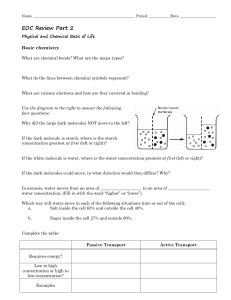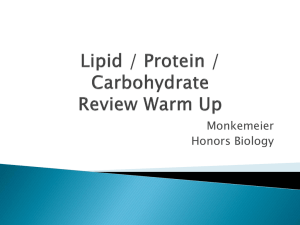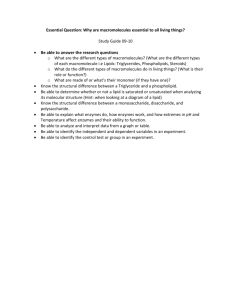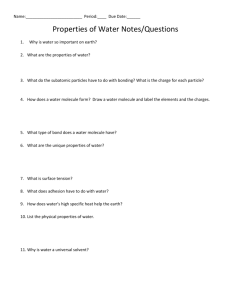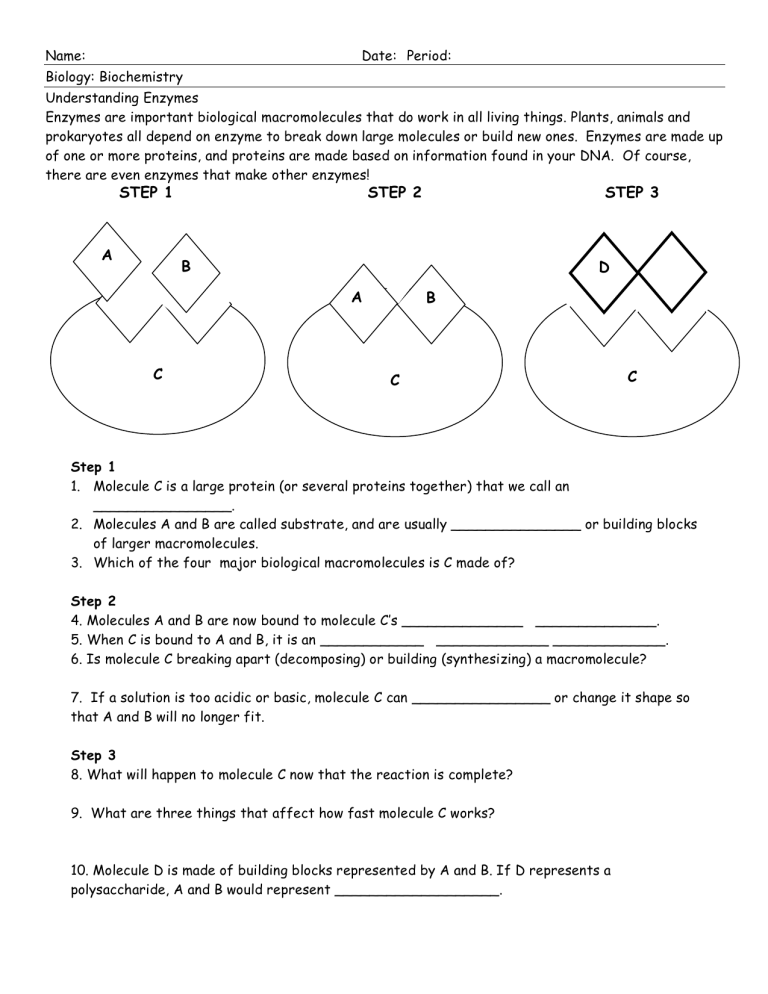
Name: Date: Period: Biology: Biochemistry Understanding Enzymes Enzymes are important biological macromolecules that do work in all living things. Plants, animals and prokaryotes all depend on enzyme to break down large molecules or build new ones. Enzymes are made up of one or more proteins, and proteins are made based on information found in your DNA. Of course, there are even enzymes that make other enzymes! STEP 1 A STEP 2 STEP 3 B D A C B C C Step 1 1. Molecule C is a large protein (or several proteins together) that we call an ________________. 2. Molecules A and B are called substrate, and are usually _______________ or building blocks of larger macromolecules. 3. Which of the four major biological macromolecules is C made of? Step 2 4. Molecules A and B are now bound to molecule C’s ______________ ______________. 5. When C is bound to A and B, it is an ____________ _____________ _____________. 6. Is molecule C breaking apart (decomposing) or building (synthesizing) a macromolecule? 7. If a solution is too acidic or basic, molecule C can ________________ or change it shape so that A and B will no longer fit. Step 3 8. What will happen to molecule C now that the reaction is complete? 9. What are three things that affect how fast molecule C works? 10. Molecule D is made of building blocks represented by A and B. If D represents a polysaccharide, A and B would represent ___________________.
